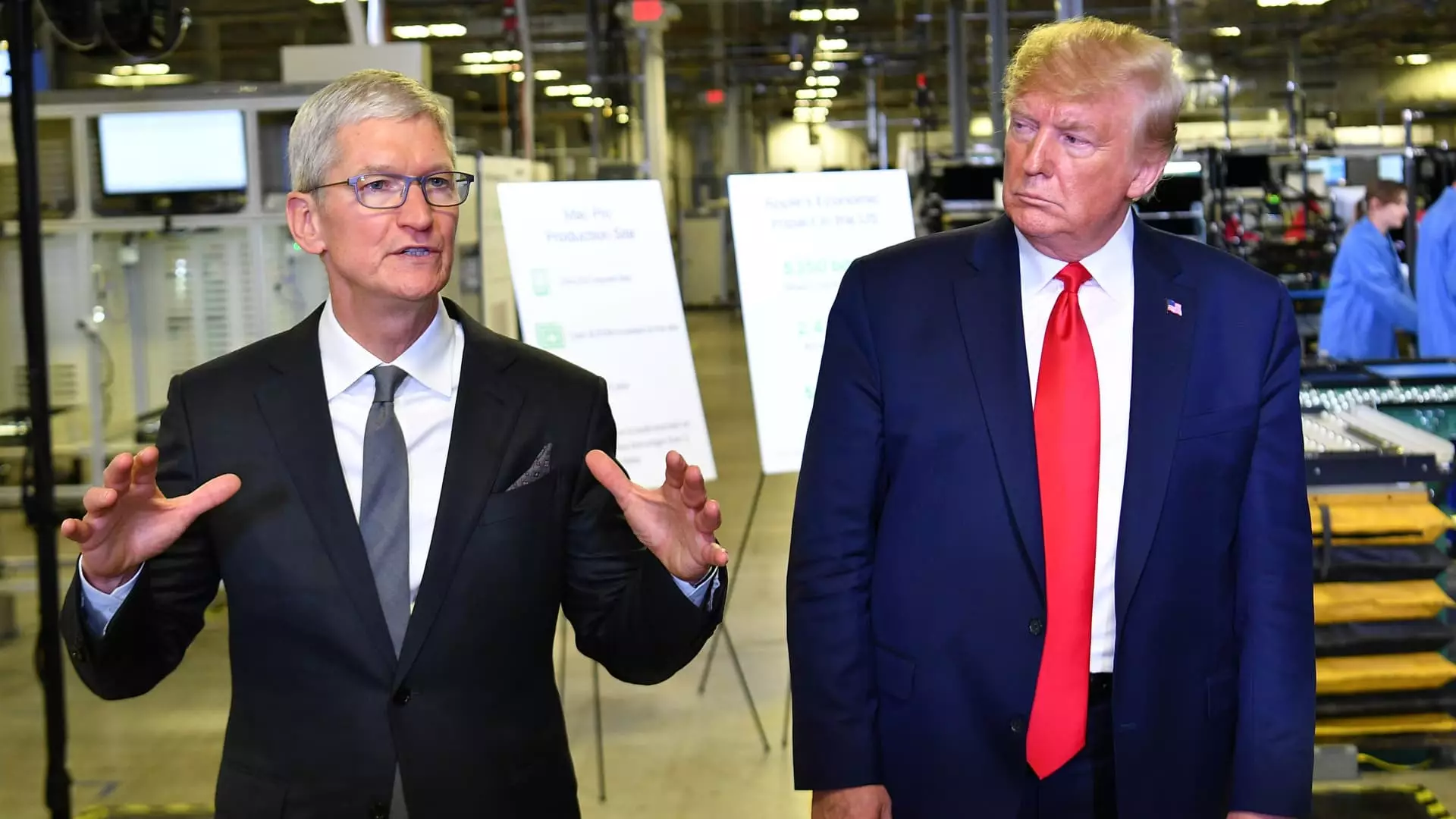In an audacious declaration that reverberates through the tech and business communities, former President Donald Trump has issued a loud ultimatum to Apple, the tech titan synonymous with innovation. Trump insists that unless Apple manufactures its iPhones in the United States, the company will face a staggering tariff of 25% or more on phones produced elsewhere, particularly in China. This scenarios presents a jarring ultimatum that not only reflects Trump’s economics but unveils the perilous crossroads at which American labor and international business find themselves. Is this a well-intentioned push for American-made goods, or merely a political maneuver designed to curry favor with his base?
Manufacturing Headaches and Economic Fragility
In theory, the idea of bringing jobs back to America sounds noble, encompassed in Trump’s visions of “America First.” Yet, the reality presents a complex tapestry of trade-offs. Apple, which has long benefitted from China’s vast and cost-efficient labor market, would incur significant production costs if compelled to shift manufacturing domestically. Although Trump claims he has communicated his expectations to Tim Cook, the CEO of Apple, the fundamental question arises: at what economic cost? Wall Street analysts have already forecast a potential 25% increase in the retail price of the iPhone if production returns to the U.S., with some estimates suggesting that a U.S.-made iPhone might soar to an eye-watering $3,500. Indeed, this challenges not only the company’s business model but also the patronage of millions of consumers already grappling with inflation.
Political Capital vs. Business Realities
The tension marks a critical juncture in the relationship between American corporations and their government. Trump’s recent comments follow a history of clashes with major corporations, signaling that he views Apple as a soft target, ripe for his political posturing. While it’s easy to frame the apparent animosity toward Apple as an isolated dispute, it reflects broader questions about corporate accountability, national pride, and the limits of political influence over private enterprise. Tim Cook’s previous political contributions and attendance at Trump’s inauguration might have earned him a seat at the table, but they also place him at the mercy of an unpredictable political climate.
The Semiconductor Dilemma
Trump isn’t leaving the world of business entirely in the hands of Apple. Accompanying his threats are remarks by Treasury Secretary Scott Bessent, who underlines the administration’s aim to bolster domestic semiconductor production. Given the strategic importance of semiconductors in the tech industry, this raises pressing questions regarding supply chain security. However, the dichotomy of encouraging American manufacturing while simultaneously imposing tariffs could jeopardize Apple’s competitive edge globally. Are we truly ready to sacrifice innovation on the altar of political ambition?
International Trade Perspectives: A Rocky Road Ahead
While the pressure to increase American manufacturing intensifies, trade tensions are beginning to resurface, signaling a potential backslide into the unpredictable chaos of tariffs and economic warfare. The situation exacerbates existing trade dynamics, already strained by previous tariffs imposed on other products from China. With the added complexity of declining demand for iPhones in significant markets like China, the fallout from Trump’s statements could have cascading effects, harming not only Apple but the broader economy reliant on it.
The enigma of Apple’s future remains precarious. The company acknowledges its projected $900 million hit from tariffs but recognizes a looming uncertainty that hangs over their strategic planning efforts moving forward. As political figures publicly critique corporate giants like Apple, the ramifications net far beyond just business. They remind us that governing and doing business are tightly intertwined, particularly in turbulent economic times. Thus, as Trump drums up fervor for American industries, one can’t help but question whether his vision will resonate with the realities of a globalized trade landscape driven by efficiency and modernization.
The Consequence of Political Gamesmanship
Amidst the political game of chess between Trump and leading corporations, the ultimate casualty could be the consumer. If Trump’s tariff threats are deemed serious, the economic burden will likely trickle down to everyday consumers—burdened with higher prices for technology integral to modern life. This poses a dire warning against the weaponization of tariffs for political gain, raising significant questions about the sustainability of such a strategy. When political ambitions collide with consumer welfare, the question remains: is the bid for American jobs worth the financial strain on citizens? The answer is complex, intricately linked to our values as a society striving for progress while contending with the practicalities of a global economy.

